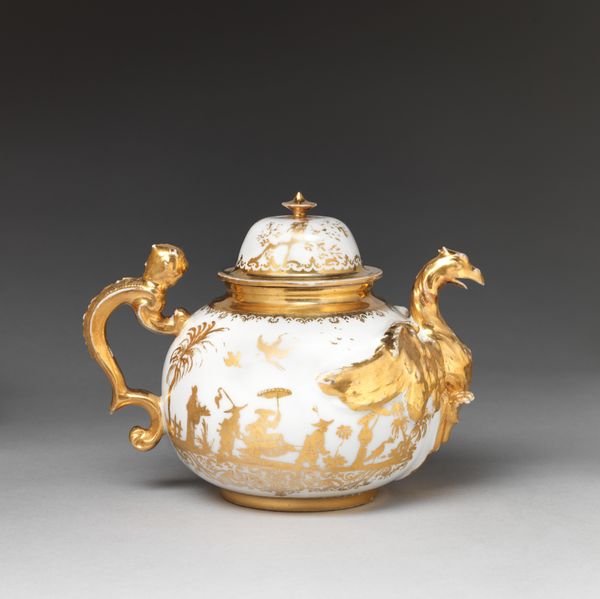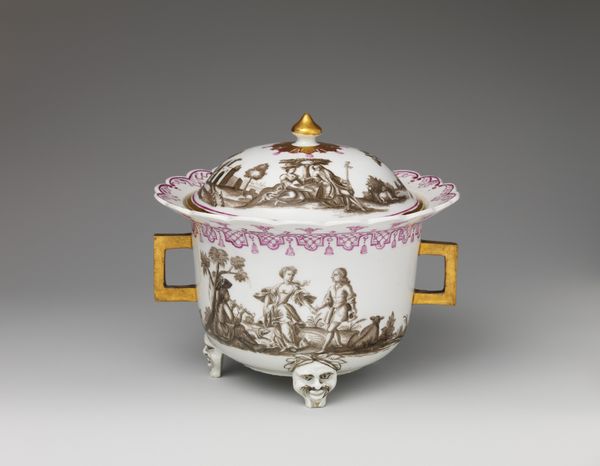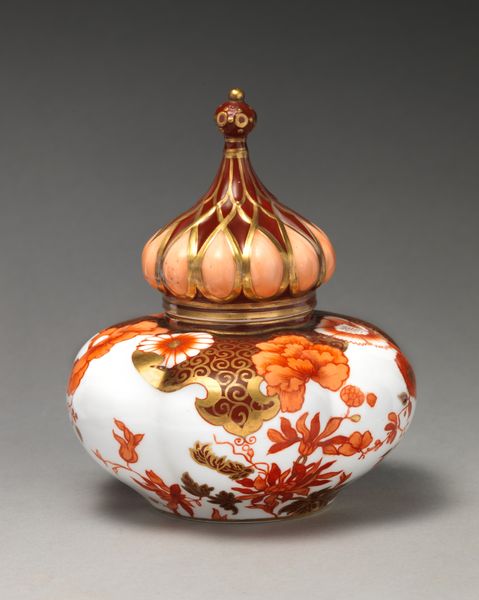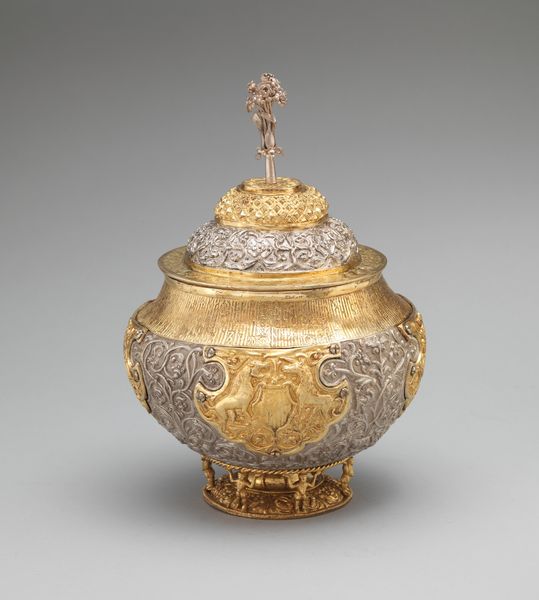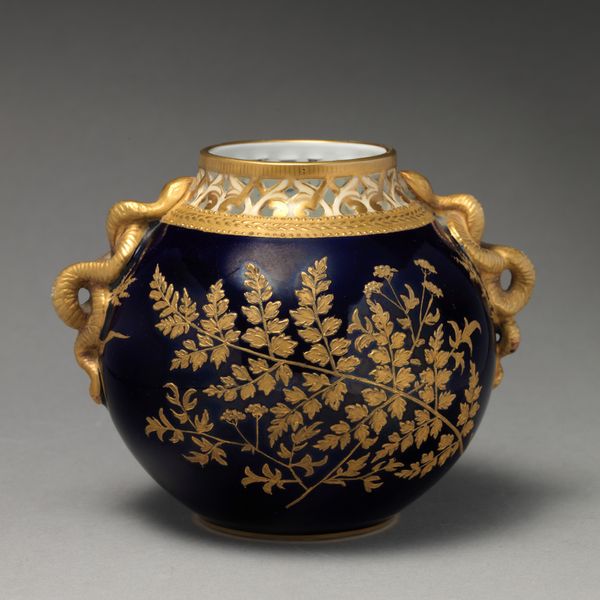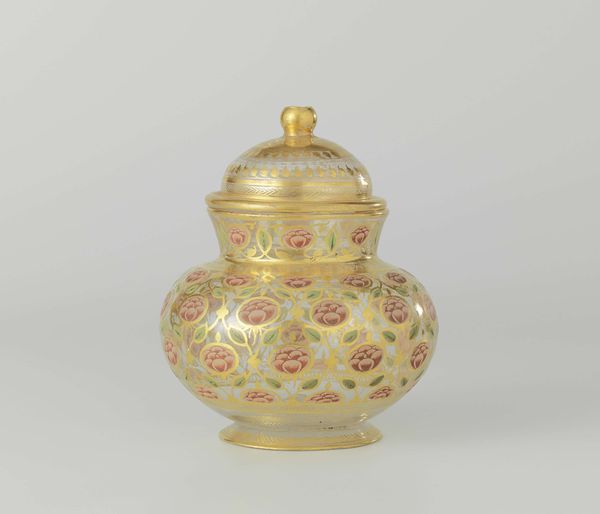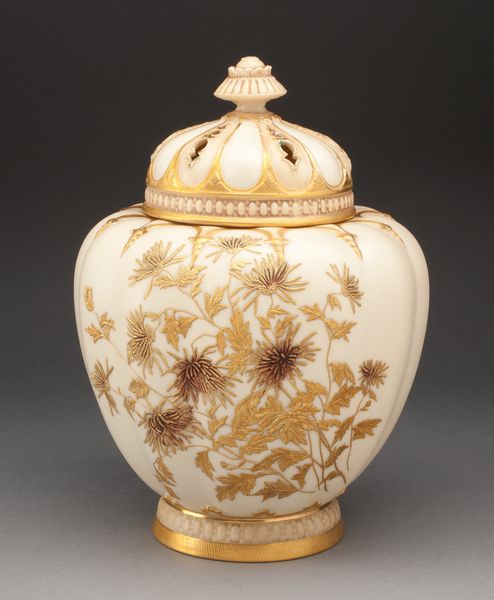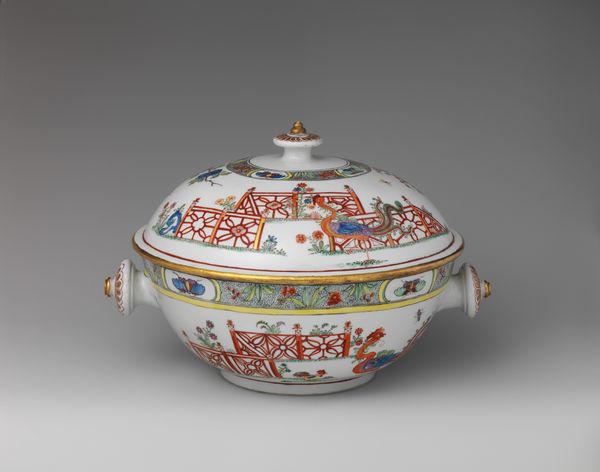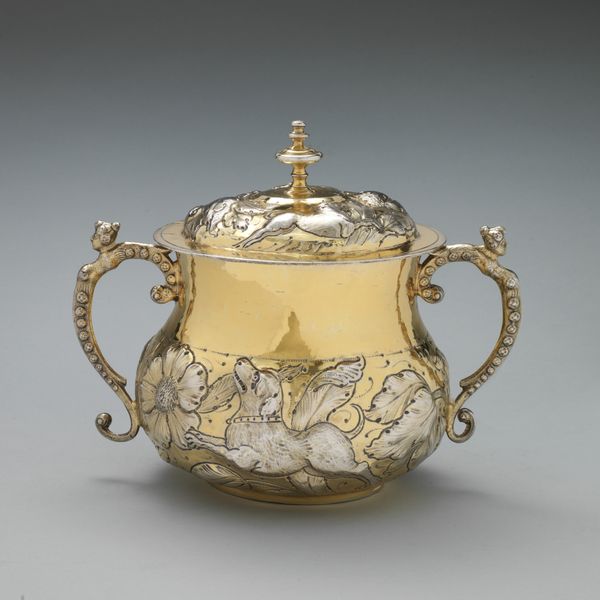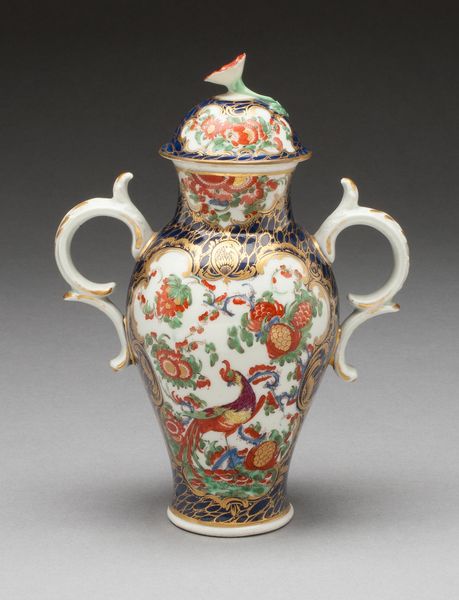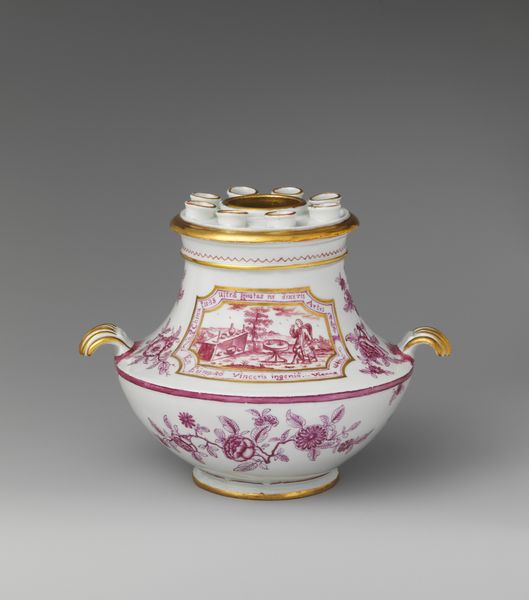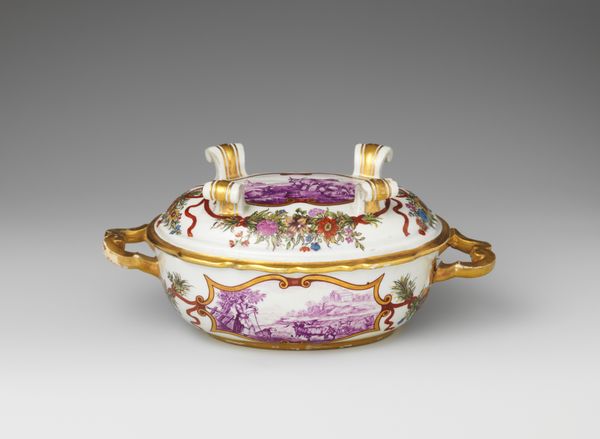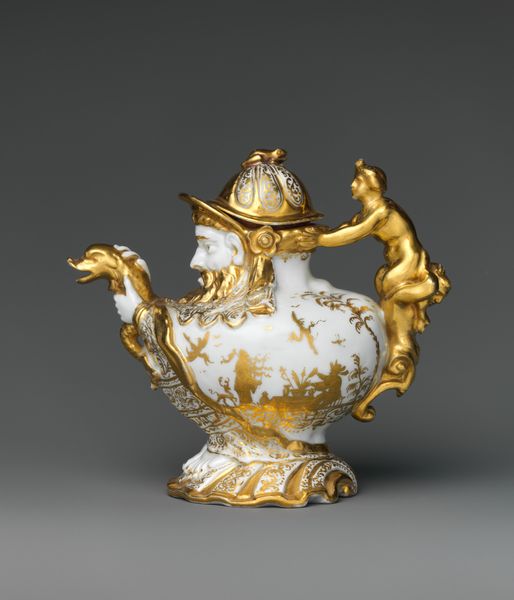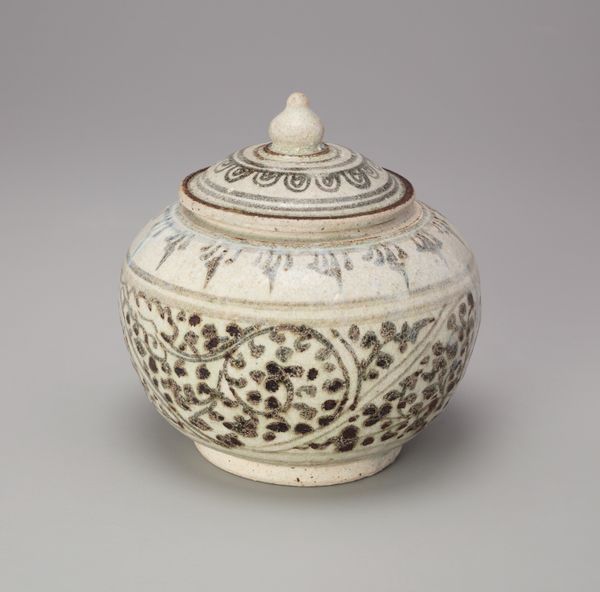
ceramic, sculpture
#
ceramic
#
sculpture
#
ceramic
#
decorative-art
Dimensions: Overall: 6 1/4 × 7 × 5 1/2 in. (15.9 × 17.8 × 14 cm)
Copyright: Public Domain
Editor: Here we have a ceramic sugar bowl, estimated to be from around 1800 to 1815. It’s currently housed at the Metropolitan Museum of Art. The sunny yellow immediately strikes me, but the shape, with those small feet, gives it an almost creature-like feel. What do you see when you look at it? Curator: The yellow glaze presents itself as the dominant structural element, certainly. However, observe how that initial field is interrupted and modulated by the brown, floral patterns and looping designs. Consider, too, the interplay of line and plane. Editor: Are you saying the design keeps it from being just a yellow bowl? Curator: Precisely. The design's repetition, its variations, even its slight imperfections – all contribute to the bowl’s visual texture. Without them, you have simply the form and hue. Now, follow my thought, what if the design was removed altogether? Editor: I guess it would feel…less intentional? The decoration really makes it something more. Curator: The relationship between decoration and object, surface and form; these define the work. The medium, being ceramic, dictates certain structural requirements to obtain functionality. These observations are central to my assessment. Editor: It's funny; I never considered how important the decorations were to the form itself. I thought they were separate. Curator: Not separate, necessarily, but operating in tandem. It is that interplay that offers the real reward here. Editor: Well, I learned a lot looking at it that way, thank you! Curator: My pleasure.
Comments
No comments
Be the first to comment and join the conversation on the ultimate creative platform.
